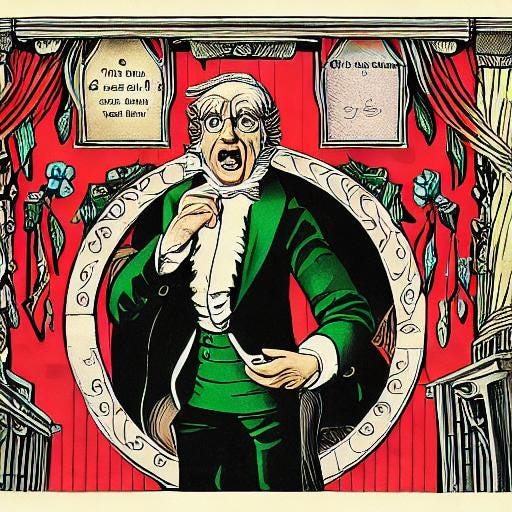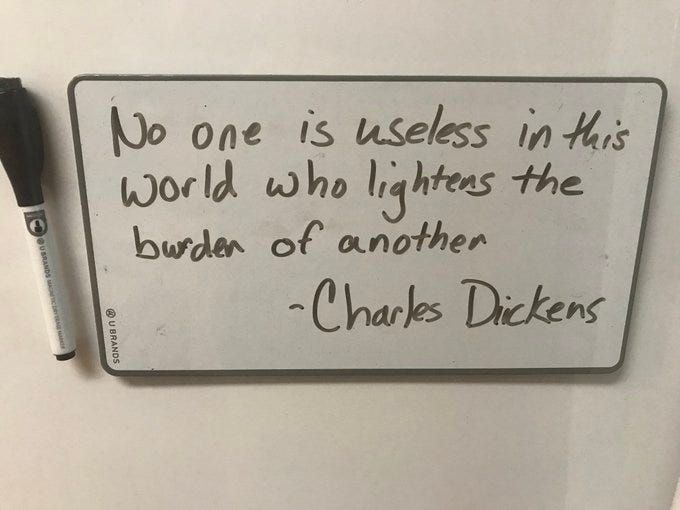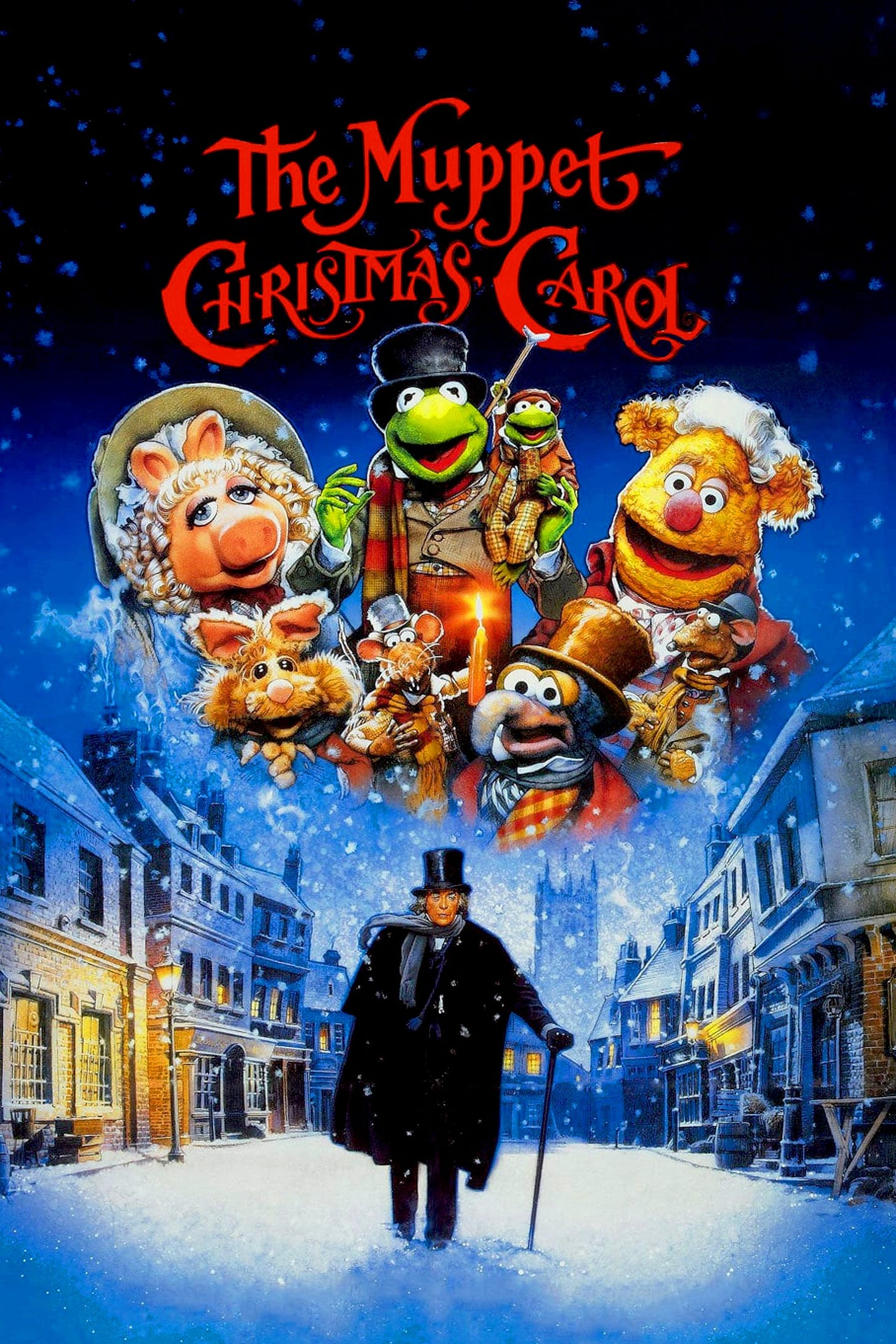Be More Like Scrooge
This month's Fridge Philosophy challenges us to be more useful
Note: Since 2018, I have placed these short quotes on our refrigerator at home to provide subtle hints for successful, thoughtful, and purposeful practices in hopes my teens would internalize them. Along the way, I found them helpful in my own life.
It’s Christmastime, so why not pull out a quote from the author that is the most synonymous with the Christmas holiday, Charles Dickens. I admit, it’s been decades since I’ve read Dickens’ tale and my main exposure to the story of Scrooge, Bob Cratchet, Tiny Tim, the three ghosts and all come from the Muppets Chrismas Carol. My family pulls out the DVD every year (because it contains the song Love Is Gone - streaming does not!) and while the Muppets are always entertaining, Michael Caine’s portrayal of Ebeneezer Scrooge is a touchstone.
In the world of Dickens, Scrooge’s first reaction to this quote would certainly be, “Bah, Humbug.” Someone who is not producing and earning money for themselves and others is useless. Unless you are being compensated for relieving someone’s burden, then charity is wasted effort.
He is visited by the ghost of his deceased partner Marley (or in the Muppets case, Marley & Marley), then three subsequent ghosts to show how his selfishness will lead to a lonely grave, his legacy easily forgotten and celebrated.
But apart from legacy, there are several beneficial reasons for helping others. Research shows that helping others leads to a longer life. In a study of older adults, it was shown that helping others helped reduce blood pressure. In the same study, those who provided support to others, were more likely to live longer than those who received that support.
Mental health also improves when helping others. It’s been proven that people who volunteer, donate money to charities, and who generally give back, are happier people. Recently, I read Build the Life You Want: The Art and Science of Getting Happier by Social Scientist Arthur C. Brooks and Oprah Winfrey. In it, Brooks shares that the macro-ingredients of happiness are “enjoyment, satisfaction and purpose.” He also quotes the Italian philsopher Cicero, who points out that gratitude “is not only the greatest, but parent of all other virtues.”
So, if providing help to others helps us physically, mentally, and is virtuous, why is it so hard to engage? When someone asks for a favor that involves more than a fraction of time or effort, why do we play the mental calculus of commitment vs. attachment to the person or cause? Why do we bargain as though we will be left less than by engaging?
“it's not my business," Scrooge returned. "It's enough for a man to understand his own business, and not to interfere with other people's. Mine occupies me constantly.”
I personally struggle with this proposition every day. I should give more of my time to help others. I know there are countless ways I can help ease the burdens of those who need it most if I just assert myself just a little bit. Many times, it’s my own ego that drives me from taking that first step. I only have so much time. I need to focus on the priorities I have set in front of me. It becomes a trasnsactional proposition. The idea of helping without getting recogntion or some compensation can sometimes seem… useless.
Perhaps there is a bit of Scrooge in me and in many of us, much as we mock his miserly ways. And by making him the total villain, we distance ourselves from the ways we relate to him. Surely, many of us think in the opening scenes, “Well, at least I’m not as bad as that old guy.” But do we ever allow ourselves to hold himself up as a role model? His transformation can happen in all of us. Maybe, we could and should do more to be like the Scrooge who “became as good a friend, as good a master, and as good a man, as the good old city knew, or any other good old city, town, or borough, in the good old world.”
Maybe, as Dickens points out, we need to open our hearts:
“Christmas, and the end of the year, is definitely a time when people try their hardest to begin afresh, a good time; a kind, forgiving, charitable, pleasant time; when men and women seem by one consent to open their shut-up hearts freely.”
And yes, it’s cliche to put out this call to action during this time of year when there are Salvation Army buckets, turkey drives, Toys for Tots and more. But the real call is to extend this beyond December 25 and into the new year. We are not useless. We can lighten the burden others feel throughout the year.




